Jones Stratos Review
The Jones Stratos isn’t a cheap board, but it does everything it says it will really well, and can pretty much justify the price.
How the stratos Rides
Board size: 159cm
Boots: Salomon Launch Boa 27.5
Bindings: Salomon Hologram
I am 6 foot tall and weigh 155lbs – or 183cm tall and 70kg.
I was riding this board at Big White in BC Canada, on a day with some nice fresh snow that had built up quite a bit in the trees. Conditions were good for testing a board like this, from tight trees with deep snow to wide open powder at high speeds.
It might seem like I had the bindings set up in an unusual way, but it works very well for me. The whole season I had been riding all directional boards with positive positive angles, which seemed to only have positives in what I could get out of the boards. I find that positive angles help me to get the board further over on edge with less effort, and it works well for me in deeper snow, while also making it easier on my back knee.
My stance width is not normally very wide, so I had the front foot set all the way back on the Stratos, where it was mounted on the float pack inserts.
Camber Profile
The Directional Rocker profile makes it sound like it is mostly rocker – though really I think that the large camber section is the main part. Solid camber between your feet gives it a good spring and stable feel, that pushed back nicely and never feels dead or lifeless, even though it is quite stiff overall.
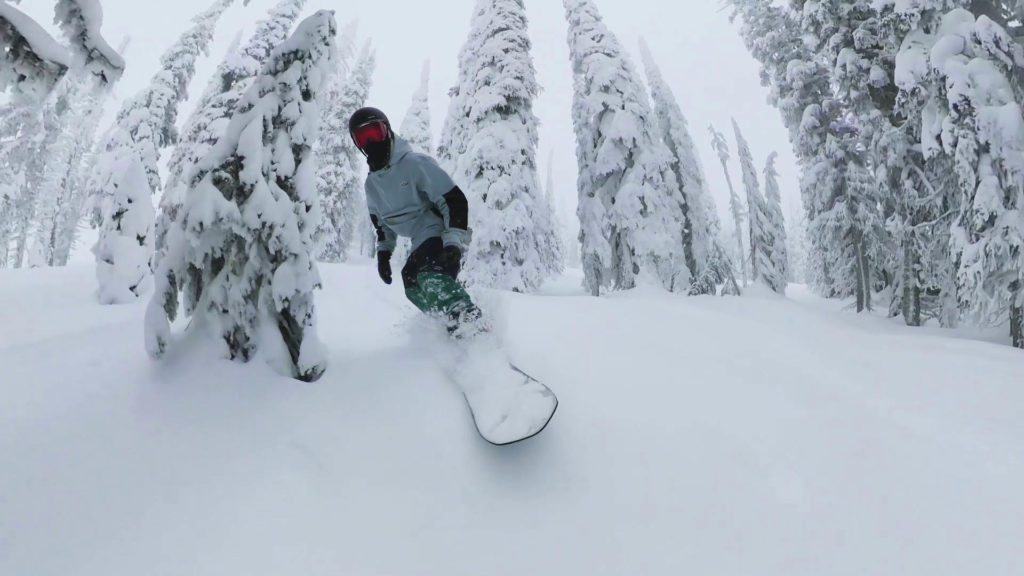
Flex and Pop
Overall the Stratos is a fairly stiff board, though I noticed it most in the stiff tail. I never found that it felt too stiff, but more that it always had enough to power through chopped up snow, and would save me when I rode into something too fast.
Edge Hold
I haven’t ever really had any issues with the edge hold on any Jones boards with Directional Rocker, and combined with the Traction Tech it has a solid feel even in icy conditions. I guess that it is the base shaping that helps tone everything down a bit, but it never feels like the edges just grab, they seem to work only when you need them.
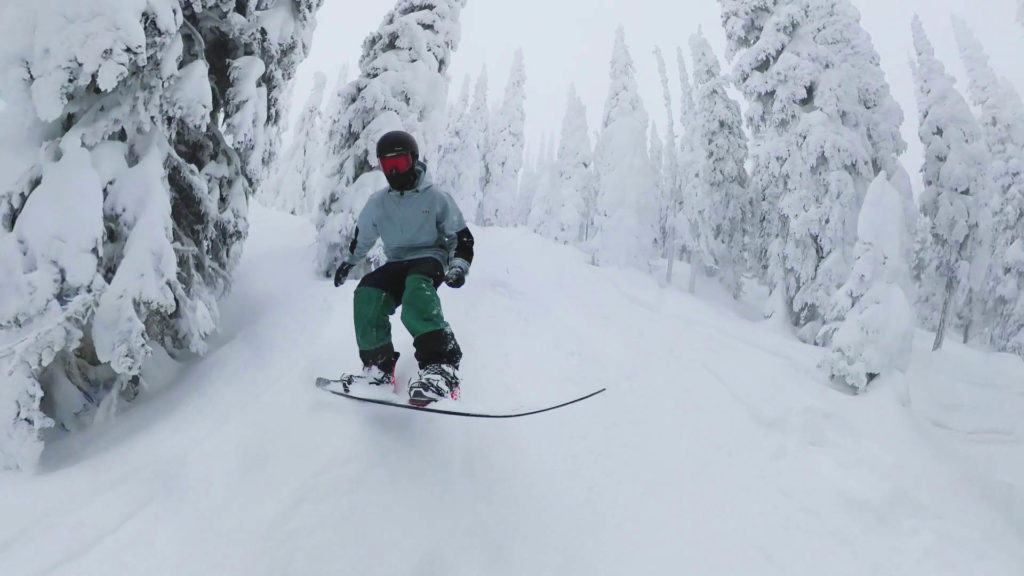
Turns
Turns (along with the float) would be the two features that I liked most about the Stratos. The directional shape, with taped makes starting a turn very easy – and it feels strong the whole way through. If you make a note to push hard through a turn, it will pop you nicely out ready for the next one – good if you want to carve more aggressively.
Especially with the angles and stance width I ride, it has a nice surfy feel in deeper snow. While it can feel like a fun surfy board, you can still easily change your weight and go back to the feel of solid and reliable powder board.
Float
Keeping the board afloat was no issue at all. Keep in mind I had the front foot on the Float Pack insert, so it also did make the long nose even longer. That being said the tail is already short, so it wants to sink and keep the nose up anyway.
Speed
It has the high end Sintered 9900 Base, so it is very quick in all conditions. It was fast in the fairly dry snow I was riding in, and I have ridden the Mind Expander (when it had the same base) in everything from warm slushy to cold dry powder so I am confident in how it works in all conditions.
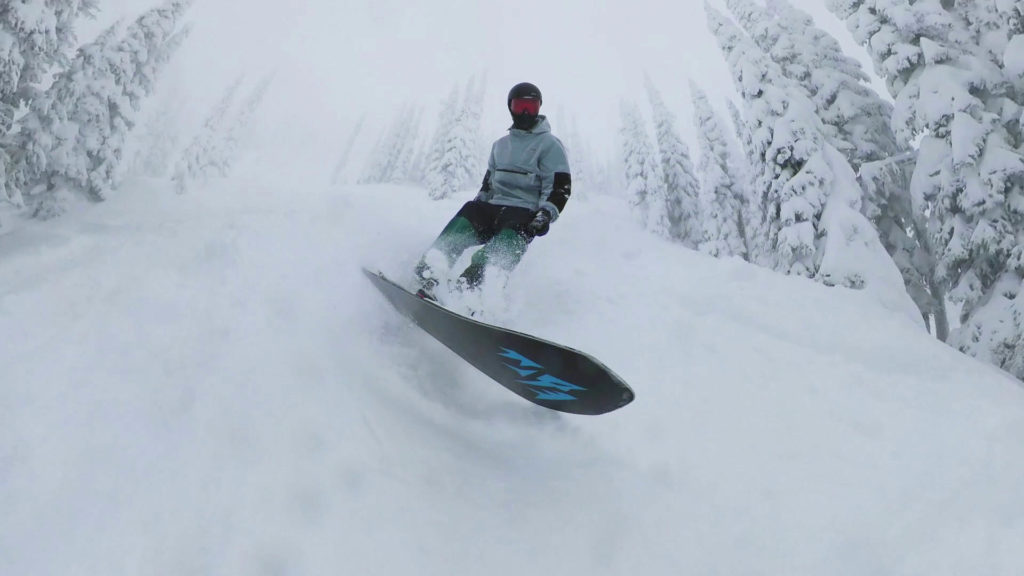
Overall
Overall the Stratos is a very ideal choice for someone who wants a board that balances performance carving as well as float in powder.
Similar boards:
Korua Shapes Transition Finder
Although the Transition Finder and Stratos are both good at carving and floating, the wider width on the Korua does slow down the edge to edge speed a little, but lets you push it further over.
The Surfer is a slightly softer but more expensive option, and with its very spooned nose makes turning and floating even smoother than the Stratos. The extreme swallowtail means it floats very well, though you still have to justify the high price.
Overall this has the familiar Jones feel, but with a huge sidecut so this would be the better option if you are looking to ride much more powder, it has a much more specific job than the Stratos
Features of the Jones Stratos
Directional Rocker

With camber under your feet this profile has a solid and stable feel, while the large rocker section on the nose gives you better float in deeper snow. A smaller amount of rocker in the tail stops the tail from feeling catchy when you don’t get your landings perfect.
3D Contour Base 3.0
 ,
,
This is the highest amount of base shaping, with quite a lot of spoon in the nose of the board, and a smaller amount in the tail.
Traction Tech

Traction tech is the serrated edges, which are shown in orange in the picture above. They work the same way that a serrated knife does, the pressure on the edge during a turn is focused on the raised sections, so they are more able to cut into the snow and give you better grip.
Progressive Sidecut
Rather than a simple radial sidecut that is made up of one single radius circle, the progressive side cut is made by blending a few different size circles, which help to make starting and ending turns smoother and easier.
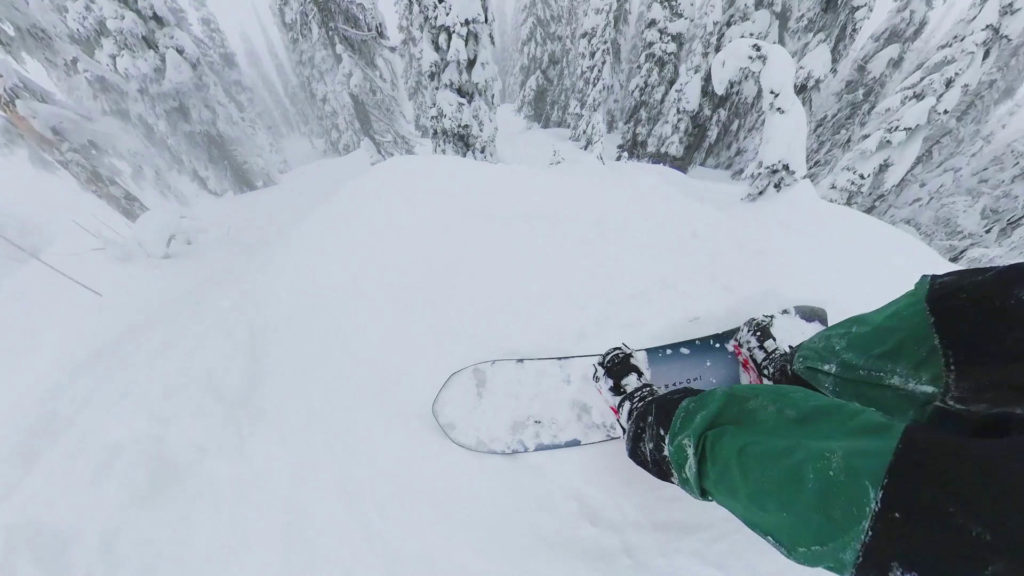
Blunt Nose
The idea of the blunt nose is that you still get good float, with less plowing and a lower swing weight.
Directional Flex
As well as the obvious directional shape, the directional flex means that the tail is stiffer than the nose of the board.
V-Core
This is the core profiling that Jones uses, which is made to keep the whole board feeling stable, while being softer between the feet and stiffer in the nose and tail.
Sintered 9900 Base
A high end, very fast and dense sintered base material.
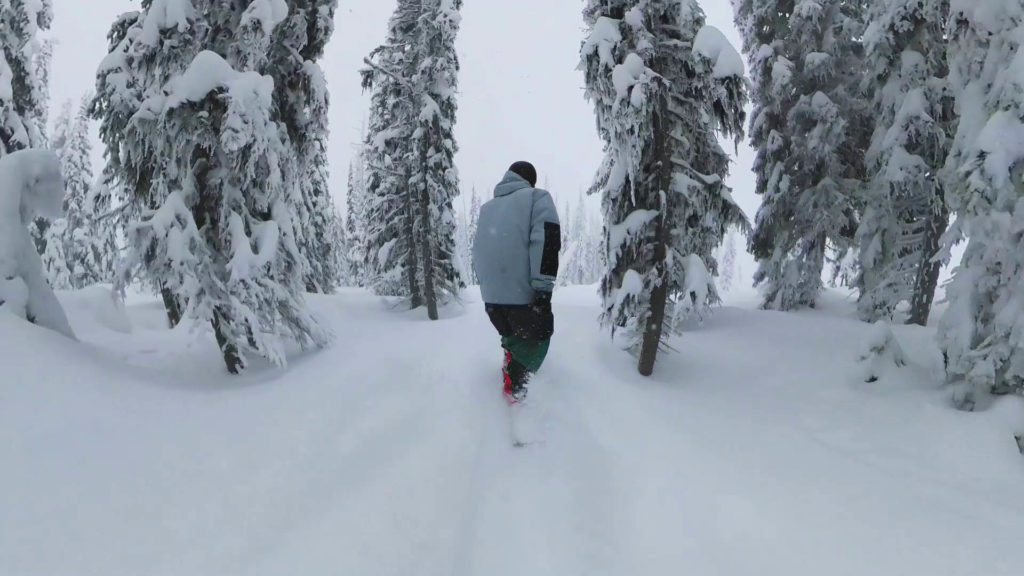
Wend Natural Base
The wax that is used when they are waxed in the factory.
Biax Fiberglass
Two directions of fiberglass.
Float Pack
The float pack is an extra set of inserts, which let you set the bindings way back on deep days.
Bio Resin
A bio based epoxy rather than a petroleum based one.
Oversized Recycled Edges
Made from recycled steel, and larger than normal to make them a bit tougher.
Factory Tuned
The edges are detuned at the tip and tail of the board, so you can ride it straight away.
Forever Flex
“Broken in” at the factory so that the board won’t change as much in feel through its lifetime.
Basalt Power Stringers
Basalt is really good at absorbing vibrations, which help to make the board feel more damp, reduce chatter and help keep the edges locked in when you need them.
Textured Eco-plastic Topsheet
The topsheet has a pretty unique look, and is made from caster beans. It is lightweight, and doesn’t scratch easily.
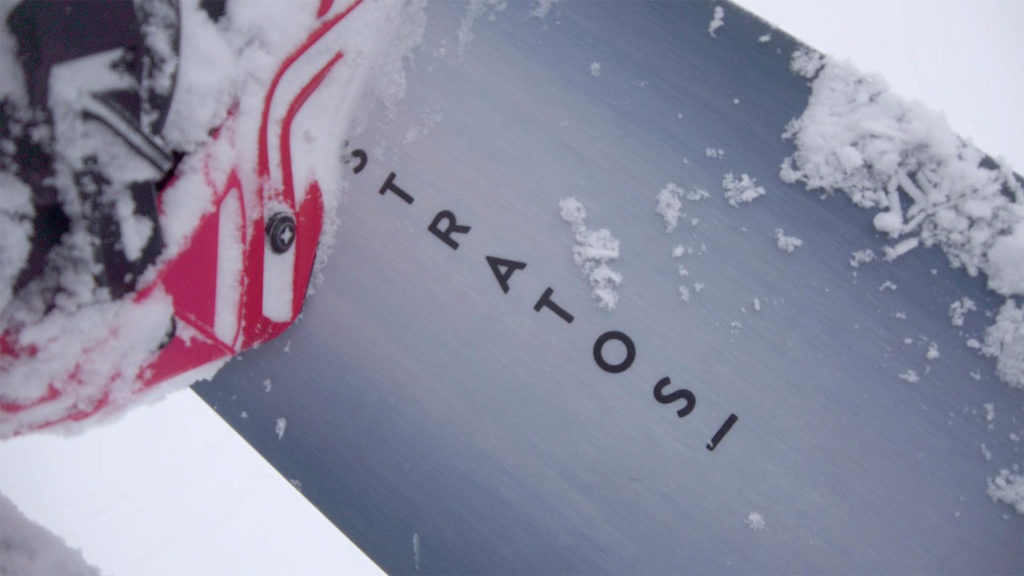
Ultra Core
Mainly made from paulownia wood, with poplar stringers for extra durability.
Sizes available:
- 153cm
- 156cm
- 159cm
- 161cm Wide
- 162cm
- 164cm Wide
Jones Stratos Technical Specs
| Length (cm) | Effective Edge (mm) | Setback (mm) | Waist Width (mm) | Sidecut (m) | Taper (mm) | Weight Range (kg) | Weight Range (lbs) |
| 153 | 1138 | 20 | 248 | 6.8 | 10 | 54-77 | 120-170 |
| 156 | 1160 | 20 | 254 | 7.2 | 10 | 54-77 | 120-170 |
| 159 | 1186 | 20 | 256 | 7.5 | 10 | 64-86 | 140-190 |
| 161 Wide | 1204 | 20 | 264 | 7.7 | 10 | 67-91 | 150-200 |
| 162 | 1212 | 20 | 258 | 7.8 | 10 | 67-91 | 150-200 |
| 164 Wide | 1232 | 20 | 265 | 8.0 | 10 | 73-95+ | 160-210 |
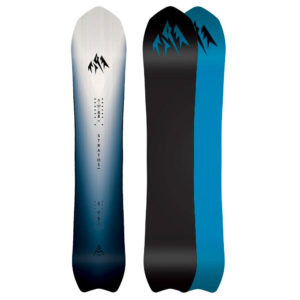
Find the best price on the Jones Stratos